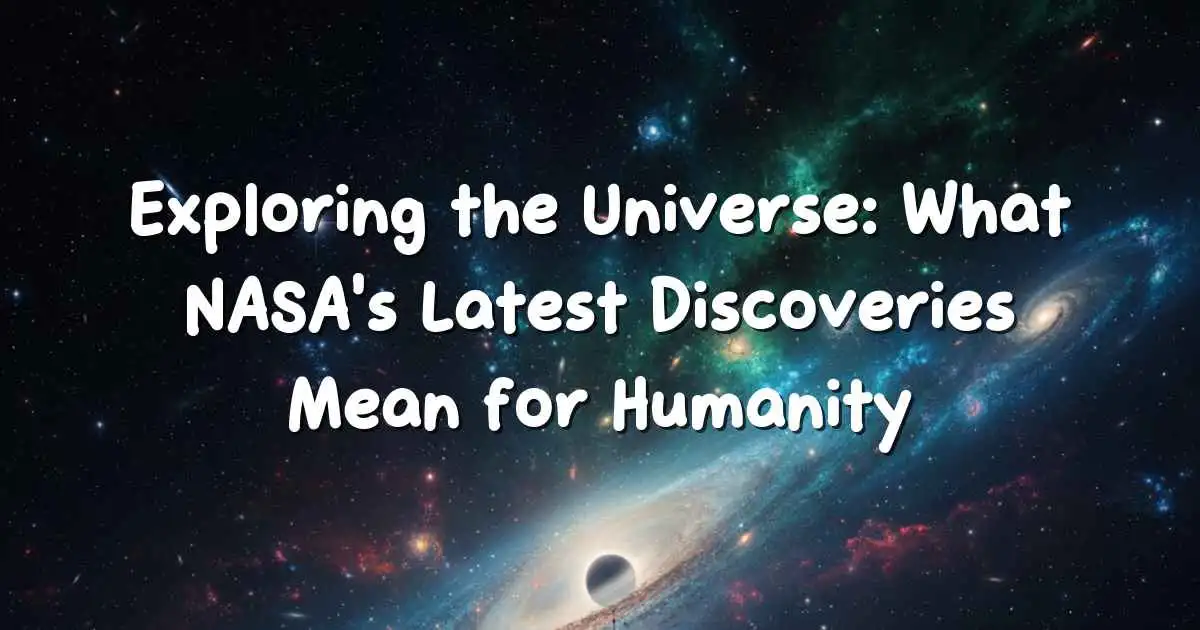Introduction: Humanity’s Unending Quest to Understand the Cosmos
Since the dawn of civilization, humanity has gazed up at the night sky in wonder. The question “What’s out there?” has driven explorers, scientists, and dreamers for millennia. In today’s age of unprecedented technology, NASA continues to lead this quest, unraveling cosmic mysteries that reshape how we view life, science, and our place in the vast universe.
Space exploration has evolved from the early days of rocket launches into a global pursuit of knowledge that influences every facet of human existence from the smartphones in our pockets to the satellites orbiting above.
The Evolution of Space Exploration: From Apollo to Artemis
A Brief History of NASA’s Greatest Achievements
NASA’s journey began in 1958, during the height of the Cold War, when the United States established the agency to pioneer space research and exploration. The Apollo missions of the 1960s and ’70s marked humanity’s first steps on another world, forever changing our understanding of what’s possible.
Following Apollo came the Space Shuttle era, which opened new frontiers in science, research, and international cooperation aboard the International Space Station (ISS). Each milestone reflected a new chapter in humanity’s desire to reach farther into the unknown.
Technological Leaps that Redefined Space Travel
With the introduction of reusable rockets, robotic explorers, and AI-powered probes, NASA has revolutionized not only how we travel to space but also how we study it. Innovations like autonomous navigation, 3D printing in microgravity, and nuclear propulsion concepts hint at a bold new age of space exploration.
NASA’s Latest Discoveries in the 21st Century
Exoplanet Exploration and the Hunt for Habitable Worlds
One of NASA’s most breathtaking achievements is the identification of thousands of exoplanets planets orbiting stars Beyond our solar system. Using missions like Kepler and TESS, scientists have uncovered Earth-like worlds that may harbor life. These discoveries have transformed our understanding of planetary systems and our chances of finding another “Earth.”
The James Webb Space Telescope: A New Era of Cosmic Discovery
Launched in 2021, the James Webb Space Telescope (JWST) has become a time machine, capturing light from galaxies formed over 13 billion years ago. Its high-resolution images allow us to peer deeper into cosmic history than ever before, revealing star nurseries, galaxy formations, and even the chemical makeup of distant atmospheres.
Water and Organic Molecules Found on Mars
NASA’s Perseverance Rover and Curiosity have both confirmed the presence of ancient riverbeds and organic materials on Mars, suggesting the Red Planet once hosted conditions favorable for life. Each discovery brings us closer to answering one of humanity’s most profound questions: Did life ever exist beyond Earth?
Black Hole Imaging and the Mysteries of Dark Matter
Through collaborations with global observatories, NASA has played a key role in capturing the first-ever image of a black hole a scientific triumph that deepened our understanding of gravity and spacetime. The ongoing study of dark matter and dark energy, which make up over 95% of the universe, continues to push the boundaries of physics.
How NASA’s Discoveries Influence Modern Technology on Earth
Space Innovations Transforming Everyday Life
Many of NASA’s technological breakthroughs have found their way into our daily lives. From GPS navigation systems and memory foam mattresses to infrared thermometers, countless products owe their existence to space research.
Even medical imaging technologies, such as MRI and CT scans, have benefited from NASA’s data processing innovations.
Satellite Data and the Future of Climate Science
NASA’s Earth-observing satellites monitor global temperatures, ice caps, and ocean patterns, providing critical data to combat climate change. These insights are essential for disaster preparedness, sustainable agriculture, and environmental preservation.
Artificial Intelligence in Space Missions
AI plays a central role in modern missions analyzing data, navigating spacecraft, and even detecting anomalies autonomously. Future missions to Mars and the outer planets will rely heavily on AI-driven systems that can make decisions in real time, far beyond human reach.
Ethical and Philosophical Implications of Exploring the Universe
Are We Alone? The Search for Extraterrestrial Intelligence
The SETI initiative and NASA’s deep-space listening programs continuously search for signals from other civilizations. The implications of discovering intelligent life would be profound forcing humanity to reconsider our uniqueness and place in the cosmic hierarchy.
The Moral Responsibility of Expanding Beyond Earth
As we prepare to colonize the Moon and Mars, ethical questions arise: Should we alter other worlds to fit our needs? What responsibilities do we hold toward potential extraterrestrial ecosystems? Space exploration challenges not only our technology but also our morality.
NASA’s Vision for the Future: Moon, Mars, and Beyond
Artemis Program: Humanity’s Return to the Moon
NASA’s Artemis Program aims to land the first woman and the next man on the Moon by the mid-2020s, establishing a sustainable lunar base as a stepping stone toward Mars.
This new era of exploration emphasizes international collaboration and the participation of private partners like SpaceX and Blue Origin.
Preparing for Mars Colonization
With the Perseverance Rover paving the way, NASA’s long-term vision includes human settlements on Mars. Advanced habitat systems, radiation shielding, and self-sustaining food production will redefine how humans survive in alien environments.
Deep Space Habitats and the Role of Private Space Companies
Private space companies are now crucial to NASA’s ambitions. Their innovations such as reusable rockets and commercial space stations make space exploration more cost-effective and accessible than ever before.
What NASA’s Discoveries Mean for the Future of Humanity
Inspiring Global Collaboration and Innovation
NASA’s missions transcend borders, fostering unity through shared scientific goals. Global cooperation in space exploration proves that humanity can achieve the impossible when we work together.
Rethinking Our Place in the Universe
Each discovery reminds us of how small, yet significant, we are in the grand cosmic tapestry. NASA’s work challenges us to appreciate Earth not just as a planet but as a rare oasis in a vast, mysterious universe.
The Next Frontier: From Exploration to Coexistence
The future of exploration lies not merely in discovery but in responsible coexistence with nature, technology, and the cosmos itself. Humanity’s destiny may ultimately depend on how we balance ambition with stewardship.
FAQs about NASA’s Discoveries and Their Impact
Q1: What is NASA’s most recent major discovery?
A1: NASA’s James Webb Space Telescope has captured the earliest known galaxies, offering insights into the universe’s origins just 300 million years after the Big Bang.
Q2: How do NASA’s discoveries affect life on Earth?
A2: NASA’s research leads to innovations in technology, healthcare, and environmental monitoring that improve daily life worldwide.
Q3: What is the Artemis Program’s ultimate goal?
A3: The Artemis Program aims to establish a sustainable human presence on the Moon as a launch point for future missions to Mars.
Q4: Has NASA found evidence of life on Mars?
A4: While no direct evidence of life has been found, NASA has detected organic molecules and ancient water sources, suggesting Mars was once habitable.
Q5: How does NASA collaborate with private space companies?
A5: NASA partners with companies like SpaceX and Boeing for transportation, satellite launches, and future lunar and Mars missions.
Q6: Why is space exploration important for humanity’s future?
A6: Exploring space expands human knowledge, fosters innovation, and ensures our long-term survival by preparing us to live beyond Earth.
Conclusion: Humanity’s Cosmic Destiny
NASA’s latest discoveries remind us that exploration is more than science it’s a statement of who we are. As we uncover the secrets of galaxies, black holes, and alien worlds, we move closer to understanding our origins and potential destiny.
Space exploration, powered by technology and curiosity, continues to inspire a future where humanity is not confined to one planet but thrives among the stars.
Related article: Sanchar Saathi App Not Opening / Login Failed Today? 60-Second Fix Before Your Number Gets Blocked




